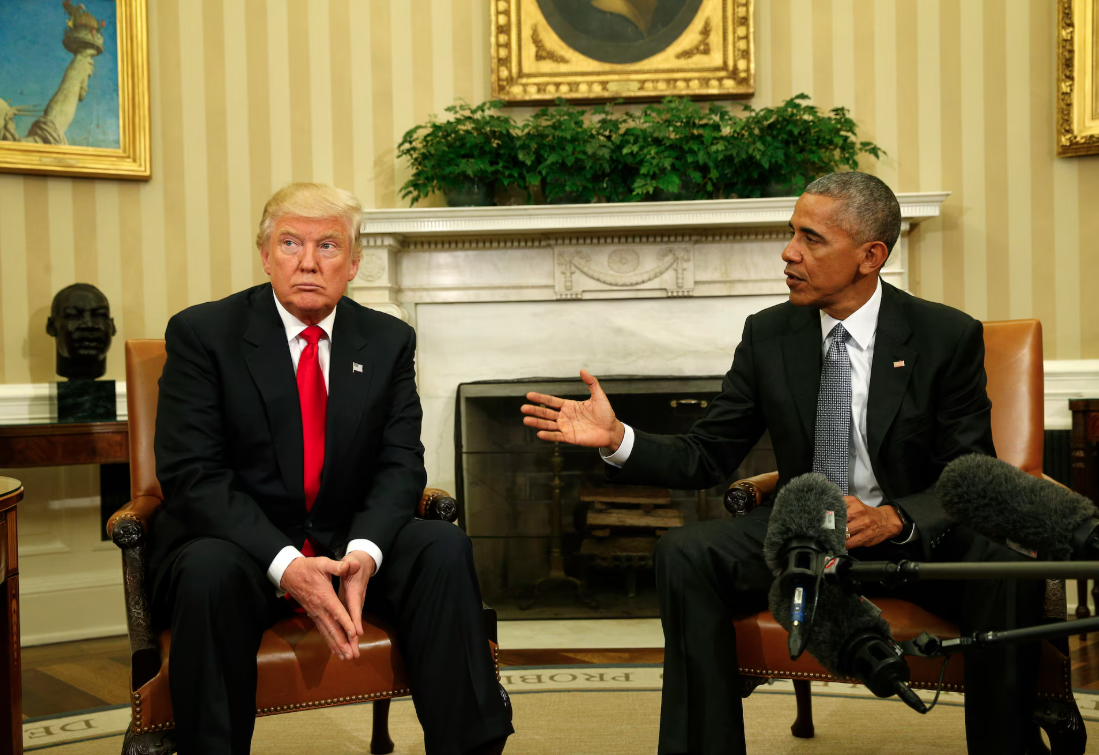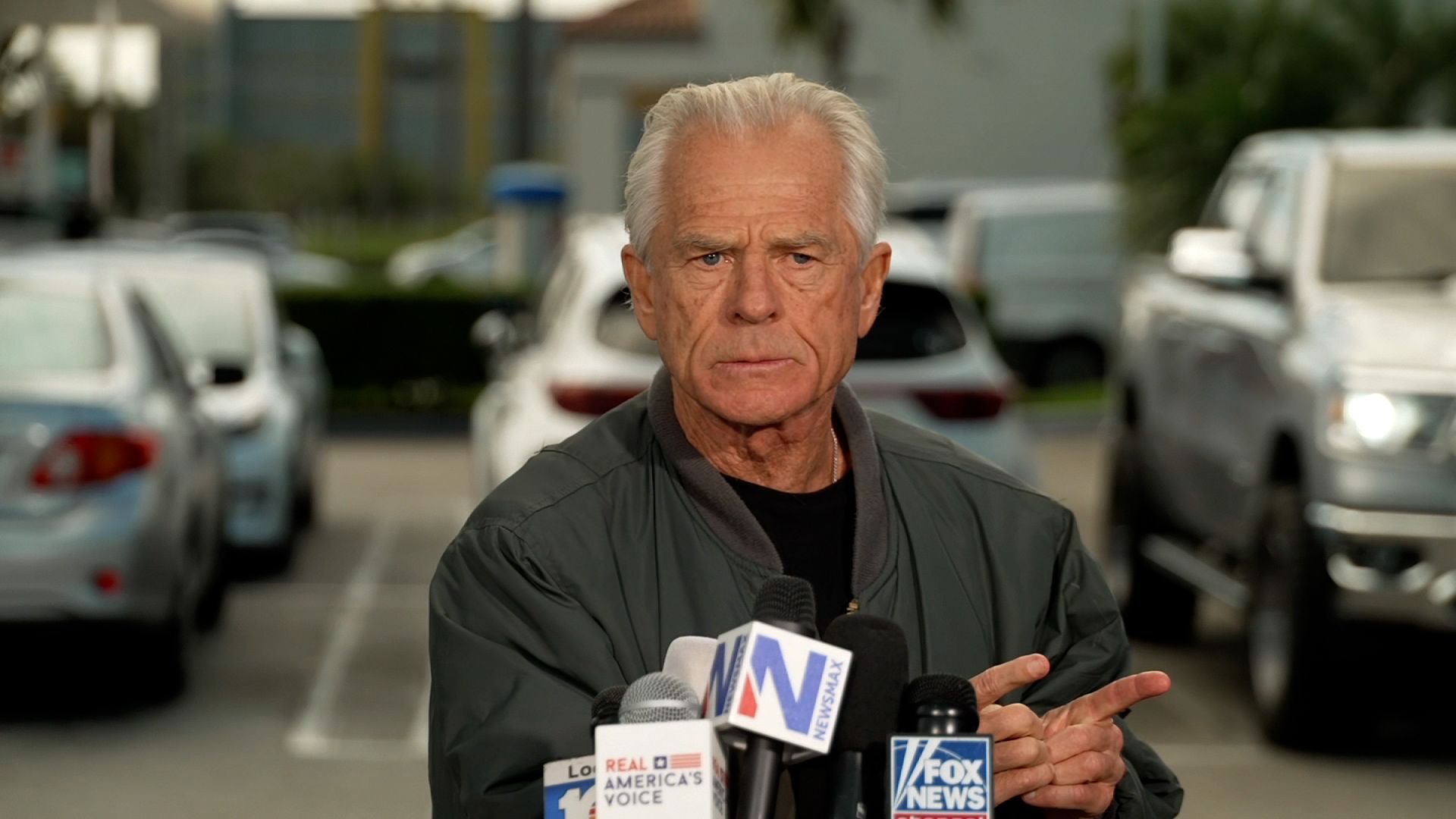Peter Navarro, a senior advisor to former President Donald Trump on trade and economic issues, has laid out what he says is a plausible scenario in which former President Barack Obama could face criminal charges for his alleged role in creating what has been dubbed the “Russian collusion hoax.
”Navarro’s remarks come against the backdrop of his own legal troubles. He was convicted of contempt of Congress and sentenced to a federal prison term after refusing to comply with a subpoena issued by the House committee investigating the events of January 6, 2021.The committee, formed under Democratic leadership and chaired by Speaker Nancy Pelosi, demanded Navarro’s testimony, but he declined, citing executive privilege.
Former White House chief strategist Steve Bannon made a similar claim of privilege and also faced prosecution. In Navarro’s case, however, the courts sided with the Department of Justice (DOJ), which rejected his immunity claim.
On Thursday, Navarro posted to X, formerly Twitter, outlining what he sees as the dangerous precedent set by the DOJ in his case. “Before my contempt of Congress conviction, the Department of Justice held that senior White House aides and even presidents were immune from congressional subpoenas. Then Biden’s DOJ flipped the script in my case,” Navarro wrote.
He added that the Biden DOJ now claims he has no testimonial immunity and that such protection does not extend to former presidents or White House aides. According to Navarro, this “flawed law” is what he is currently fighting on appeal.
The significant point, Navarro argues, is that the same legal logic could apply to former officials from the Obama and Biden administrations — including the former president himself.“The kicker,” he wrote, “is that former Obama and Biden officials are also subject to prosecution due to the precedent set in cases against Bannon and myself. They’re headed for the slammer.”

The renewed discussion over Obama’s legal exposure stems from allegations made by Director of National Intelligence Tulsi Gabbard. When Gabbard declassified a memo on the origins of the Trump-Russia investigation, she named Obama as a conspirator in crafting the collusion narrative under what she claimed were false pretenses.
Obama’s name was included in a Justice Department referral connected to the matter. However, his potential vulnerability is complicated by a Supreme Court ruling last year affirming presidential immunity for official acts performed while in office.
Trump, speaking last Friday about his predecessor, acknowledged that the immunity ruling is likely a strong legal shield for Obama. “It probably helps him a lot. Probably helps a lot. The immunity ruling, but it doesn’t help the people around him at all. But it probably helps him a lot,” Trump said.
Nevertheless, Trump left no doubt about his personal view of Obama’s actions. “He’s done criminal acts, there’s no question about it. But he has immunity, and it probably helps him a lot… he owes me big, Obama owes me big,” he told reporters.
The suggestion is that while Obama might escape prosecution for actions deemed official, close aides or advisors who participated in the alleged scheme could face serious legal jeopardy under the DOJ’s current interpretation of immunity.
David Schoen, a veteran trial attorney who represented Trump during his second impeachment trial, has offered another perspective on why Obama’s immunity might not be absolute.
Schoen pointed out that during Trump’s second impeachment, House impeachment managers from the Democratic Party argued that a former president could still be impeached even after leaving office. By their logic, he said, any president — including historic figures like Abraham Lincoln or George Washington — could be impeached post-tenure.
According to Schoen, this argument could backfire on Democrats in the present moment. “As I predicted at the time, this would come back, they would rue the day because President Obama could be impeached if this evidence really says what it says,” Schoen told Newsmax.

He further explained that Article I, Section 3, Clause 7 of the Constitution specifies that after impeachment, a convicted individual is barred from holding further office and “shall nevertheless be liable and subject to indictment, trial, judgment and punishment, according to law.
”This clause, Schoen suggested, could be interpreted to mean that impeachment proceedings against Obama — if undertaken and successful — could strip him of immunity and expose him to criminal prosecution.
While Navarro and Schoen’s interpretations differ slightly, both agree that recent legal developments open the door to greater scrutiny of former presidents and their senior staff.
Navarro’s position focuses on the DOJ’s application of testimonial immunity in congressional investigations, while Schoen’s centers on constitutional mechanisms for removing immunity through impeachment.
In either scenario, the risk to Obama would depend on several factors: the classification of his actions as official or unofficial, the willingness of Congress to initiate impeachment proceedings after his presidency, and the DOJ’s appetite for prosecuting a former president.
The alleged wrongdoing — described by critics as the orchestration of a false narrative linking Trump’s 2016 campaign to Russian interference — has been a political flashpoint for years.
Multiple investigations, including special counsel Robert Mueller’s probe, examined the matter without charging Trump or his campaign with conspiracy, though questions remain among both supporters and detractors about the motives behind the investigation’s launch.
The cases against Steve Bannon and Peter Navarro are particularly significant in this discussion because they involve contempt of Congress charges for defying subpoenas on executive privilege grounds.